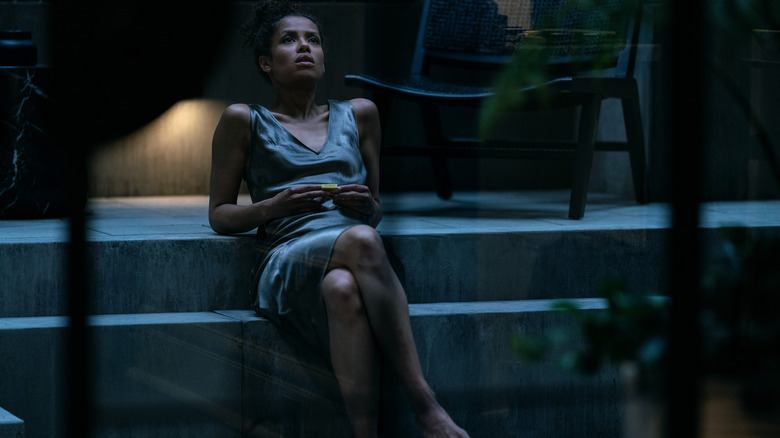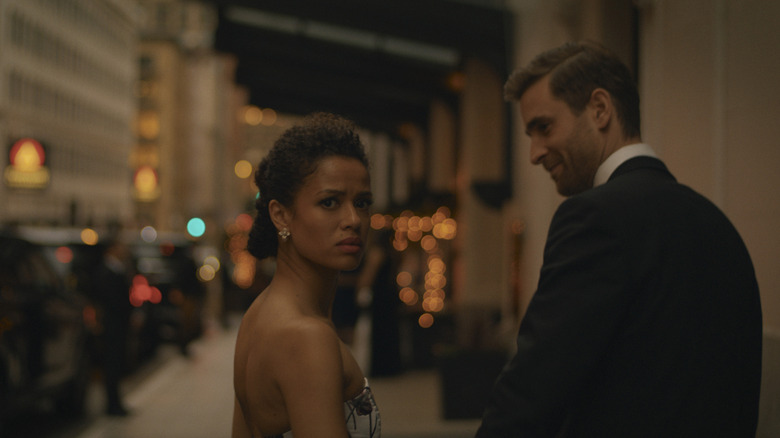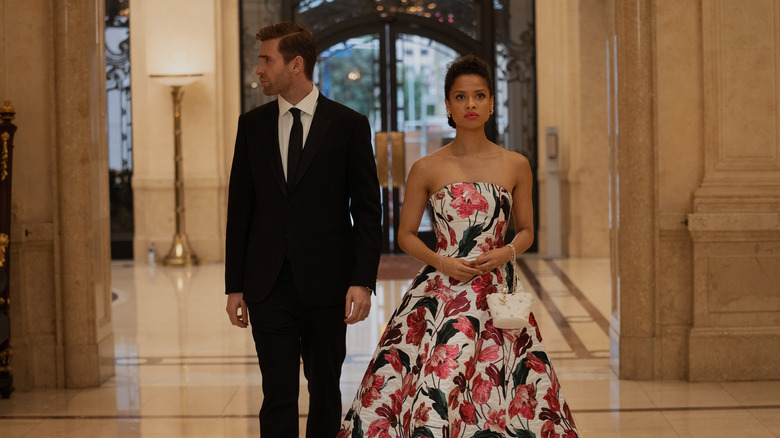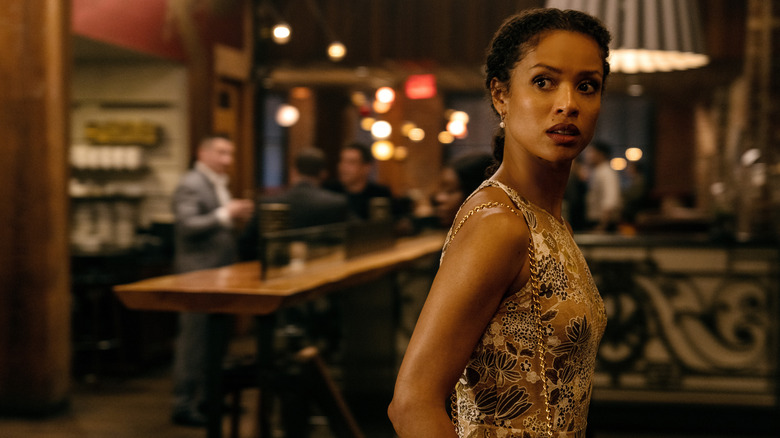Surface Showrunner Veronica West On Making A 'Girly Show With Dark Themes' [Interview]
The Apple TV series "Surface" is a noir thriller in which a woman named Sophie (Gugu Mbatha-Raw) loses her memory after purportedly trying to die by suicide, and finds herself navigating the uber-rich social circles of San Francisco trying to find out who she was and what mysteries from her past continue to affect her in present day.
The show comes from the mind of Veronica West ("High Fidelity"), and in the lead-up to the show's premiere, /Film had the chance to talk with her about the show, including how certain parts of the story changed when Mbatha-Raw joined the project.
Read on for that discussion and get a better understanding of what to expect when the show premieres on Apple TV+.
This interview was lightly edited for clarity and brevity.
'Would you make the same choices that you made back then if you had it to do all over again?'
One of the themes for the show is how everyone has different versions of themselves, and for Gugu Mbatha-Raw's character, Sophie, she has the added complexity of not knowing any of these versions of herself. Was that the catalyzing premise for creating the show?
Sophie's circumstances are obviously incredibly extreme, right? She's lost everything. She doesn't know who she is and she doesn't know the circumstances under which her memory loss occurred. But this idea of looking backwards and finding different versions of yourself, as you so astutely pointed out, I think is something that we can all relate to. Thinking about myself — right now I'm older, I'm a mom. I have this show. I'm, for all intents and purposes, an "adult."
But in the past, looking at the other versions of myself in my 20s ... if you met that person on the street, would you even recognize them? Would you make the same choices that you made back then if you had it to do all over again? And I think that's why, even though Sophie's journey is really complicated, and it's in this heightened escapist kind of psychological thriller, it's still something everybody can understand, because we've all been through that, in a sense.
Another thing about the show is the location. It takes place in San Francisco and their house — which looks like the "Full House" home painted all black — is almost a character in itself. Did you always plan to have it in San Francisco? And did you always plan to have it play such a prominent role in the series?
Well, it's funny that you asked. The original spec script that I wrote was set in London and Sophie was American, because I always thought there was something very interesting about crossing overseas to escape your past. What would have to go so wrong that you were willing to make that leap?
But when Gugu came on board, we thought it would be so interesting for her to play British — people were saying this show feels like a throwback to noir, and San Francisco, with the "Vertigo" connection and that timeless classic mystery that the city has. It has a soulfulness that some other major cities don't. So having Sophie play British in San Francisco just all came together.
'What I loved about this idea for Surface is that Sophie is unapologetically feminine from the beginning'
I know Gugu came on fairly early on in the process. Were there any other changes you made besides the shift to San Francisco when she came on board?
It was just like a gift to have her from the beginning. I knew she had such a chameleonic quality to her and her performances. Knowing that she could really embody these different sides of Sophie, it just made us fearless in our storytelling. We knew we could push this character as far as we wanted to go, and I just appreciate the blessing that it is to have Gugu play Sophie.
This is your latest project since co-creating the "High Fidelity" series, which also features a female protagonist in a genre where they aren't always front and center. Is it important for you to do that in the work that you do?
I think as female storytellers, it's a responsibility and a privilege to be able to put women at the forefront of our stories. Looking back at psychological thrillers and some of the things that play in the same stakes that we're playing in, sometimes the female character is forced to occupy more of a traditional masculine space — the detective, the CIA agents, something like that.
And what I loved about this idea for "Surface" is that Sophie is unapologetically feminine from the beginning. She is a different kind of heroine, and yet she's dealing with the same mistakes that they do on other shows. I thought it was really interesting to just go forth and make a girly show that still played with really dark themes.
'We have to know the circumstances behind what this intrusive thought means to Sophie'
One of the things I noticed –and this is, I'm sure, a team effort — but there's an interesting thing done with the lens where, especially in the first few episodes, it's focused almost like portrait mode on Sophie and whomever she's talking to, with the background is blurry. How did that choice come about? I see what it conveys in terms of reflecting her loss of memory, but I just wondered how that came to be.
That was something that [director] Sam Miller and Tami Reiker, our cinematographer, brought to the table. And I really responded to it creatively because it gave you this very atmospheric notion of being in Sophie's point of view and seeing the world the way that she sees it, where she's still really grasping at the edges to try to understand things. I thought it was just a really interesting layer to add on top of this story visually.
Without getting into spoilers, I think it's fair to say that within each episode, you peel back a layer of onion and find out a little bit more about not just Sophie, but the other characters as well. And while we definitely get some answers about Sophie's past, there are definitely lingering questions that remain. Do you have answers to those lingering questions about Sophie's backstory that we haven't found out about yet?
Absolutely. When we went to shoot the pilot, I said to the writers before we started breaking season 1, "We have to know the circumstances behind what this intrusive thought means to Sophie." So we've gone into the season with that trauma really informing Sophie's choices in the past and moving forward. And if there were to be multiple seasons of the show, I think that's the next chapter, is answering that mystery.
The first three episodes of "Surface" drop on Apple TV+ on Friday, July 29, with the ensuing five episodes released weekly on the following Fridays.



